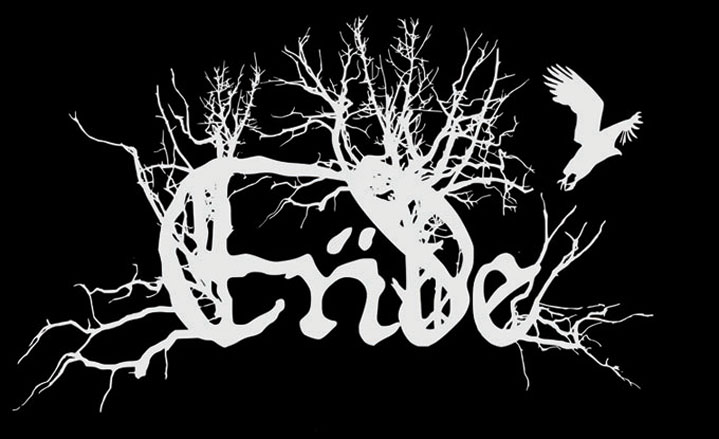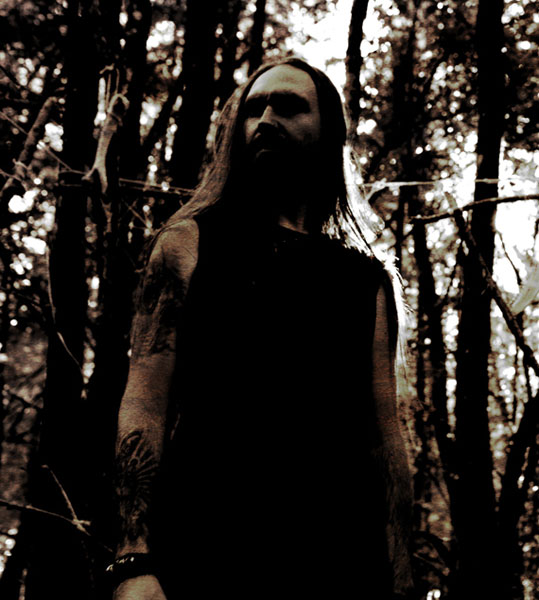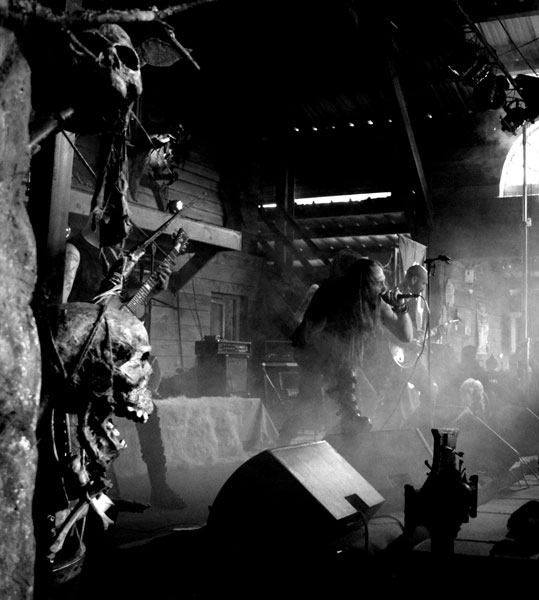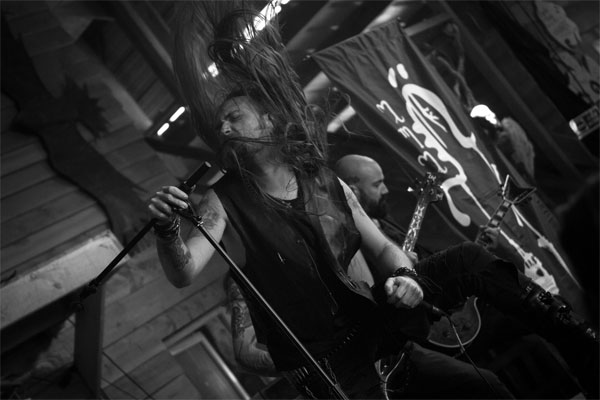
You can support Terra Relicta by donating! Please, do so, and thank you!

Interview with: I.L. (Luciferia)
Conducted by: Felin Frost
A phenomenal French black metal band, Ende, has been since 2010 offering a true form of black metal, harsh, evil, full of emotion, full of energy and a overwhelming force. Ende astonished the fans of black metal already with their first album, Whispers Of A Dying Earth, released in 2011. The Rebirth Of I was the name of the second full length and the band also released, The God's Rejects demo in 2015, and a song, "Notre Falaise", for the split EP named Le Puits Des Morts together with Sorcier Des Glaces, released in 2016. The band's latest album, Emën Etan was released in March this year and is a real black metal masterstroke (you can read the review over HERE)! All the tracks are powerful, raw, atmospheric and this work shows us much more aggression than anything Ende did before. The band consists of vocalist/multiinstrumentalist I.L. (Luciferia) and drummer Thomas Njodr, plus three live session members. The brilliant mind behind all this magnificence is I.L. (Luciferia) who gave me the honour to interview him.
 F.F.: Hi! Can you tell me a bit about Ende's background and about history of the band?
F.F.: Hi! Can you tell me a bit about Ende's background and about history of the band?
I.L.: Hellz, Ende was formalized in 2010 but the first recording were made in 2004. It was some acoustic songs, then, we incorporated them in our first album, realized in 2012. Some other songs were recorded in 2008. Two years ago, Cold Dark Matter Records has released these songs as the first official demo-tape The God’s Rejects – MMVIII. During the year 2015, The Rebirth Of I is realized, then in 2016 Le Puits des Morts (split with Sorcier Des Glaces) and finally in 2017 our new album called Emën Etan is available. Since the beginning of Ende, we collaborate with the German label Obscure Abhorrence Productions, also, we work with Dread Records (USA) for the tape versions. These guys are important partners and huge support for Ende really, Hail to him!
F.F.: And what about your engagements in previous bands? I know that you played with Reverence and Osculum Infame among others. T.N.'s start was with The Veil. The differences between the perspectives of you I.L. and the other musicians in both musical and personal approach was a turning point that led you to create Ende, right? And what about Thomas Njodr,... how the changes started in your mind?
I.L.: Thomas Njodr played in death detal bands too, we both come from the extreme scene. I created Ende and Thomas joined me. Each music style brings something different, it may be interesting to explore some other emotional ways.
F.F.: I read a review on the album Le Puit Des Morts made in partnership with the band Sorcier Des Glaces. At one point, the critic says: "Their tracks are decent, but they seem to suffer from a massive case of schizophrenia." What did you think of that comment?
I.L.: I don’t know exactly. But if having reviews is important to promote an album, I don’t feel very concerned about the opinions that come out from these articles. A review engages only the opinion of its author, if he liked it, it’s perfect, if not, no problem. The only important thing is that we are satisfied with what we have done.
F.F.: Analyzing the discography of Ende, I saw a sort of spiritual growth, so to speak. Each album seems to me a stage completed in this inner evolution in the search of the higher self, yet of the creative and primal force. Are my remarks correct? If not, tell me about the "connection" in the Ende projects.
I.L.: Throughout life, we work on ourselves, so I think it's normal to feel this kind of thing through music. The band evolves along with us, it is the extension of what we are at each moment in life.
F.F.: Emën Etan is a masterpiece from my point of view. For me it's a more individual evolutionary step of consecration. The structure in which the songs were arranged, or rather the order of the tracks is very interesting and well thought, was this made purposely? I.L.: There is a conductive line, this album is like a grouping of several short stories but as the whole represents a logical and precise theme about the witchcraft during the middle-age in the old Europe. Each story is more or less violent and depending on the intensity of the music itself, sometimes fantastic, sometimes aggressive.
I.L.: There is a conductive line, this album is like a grouping of several short stories but as the whole represents a logical and precise theme about the witchcraft during the middle-age in the old Europe. Each story is more or less violent and depending on the intensity of the music itself, sometimes fantastic, sometimes aggressive.
F.F.: Can you explain for your fans that don't understand French what's the meaning of the title and main track "Emën Etan"?
I.L.: Several spellings are possible for writing "Emën Etan" according to the old Europeans country. So it's not specially in French language. "Emen Etan" means "here and there", stories tell that on the Sabbath day, the witches were dressed with ointment and pronounced "Emën Etan", they were then transported to the place where the Sabbath was. Anyone confessed anything under torture and popular beliefs, fear, hysteria, were powerful foundations.
F.F.: Now I'm interested in the back cover of the album, there's kind of mysterious scripture. What can you tell me about that?
I.L.: These inscriptions are written in the Theban alphabet. The origin of this alphabet is rather unknown but some theories and ancient cults suggest that this alphabet was invented by Honorius from Thebes during the Hellenic period. But there is no historical evidence to prove this fact. Witches used this alphabet to codify their writings. The sentences on our layout mean "She (The witch) walks with me, she walks against you", there is a clear rejection of the judgment of others, of accepting to go alone in a path that may be obscure for some, but a rescue for others. Also, it is an open-mindedness about occultism, individualism and spirituality. Sometimes, there are paths that we must go alone.
F.F.: How much are you connected with Wlad Drakksteim? What was the purpose to bring back "Under A Carpathian Yoke"?
I.L.: Wlad belongs to the small circle of people with whom we are bound. One day we told him that we would like to make a cover song of Vlad Tepes, we wanted to bring back to life Vlad Tepes during a song and that he could join us for the rebirth of his project, which he accepted.
 F.F.: Do you think that even though we are labeled as antisocial or misanthropic, could we unite as a "community" as long as individualism is the "locus"? Do you think that this would be possible or is it just utopic?
F.F.: Do you think that even though we are labeled as antisocial or misanthropic, could we unite as a "community" as long as individualism is the "locus"? Do you think that this would be possible or is it just utopic?